To anyone who will listen, I preach the greatest love and respect of Casablanca, the 1943 Oscar winner for Best Picture from director Michael Curtiz. You might be able to name singular instances, throughout the vast history of cinema, of better ensemble acting, better war-time intrigue, better left-field star turns, better broken hearts, better dialogue, and better romance. You might. However, I challenge you to try and find a better movie in Hollywood history that has all of those qualities working together at once. Because of the successful combination of so many outstanding qualities, Casablanca is the closest I personally will find to a perfect movie. The film celebrates its 80th anniversary this year with its first release on 4K-UHD disc from Warner Bros. Home Entertainment.
THE MOVIE
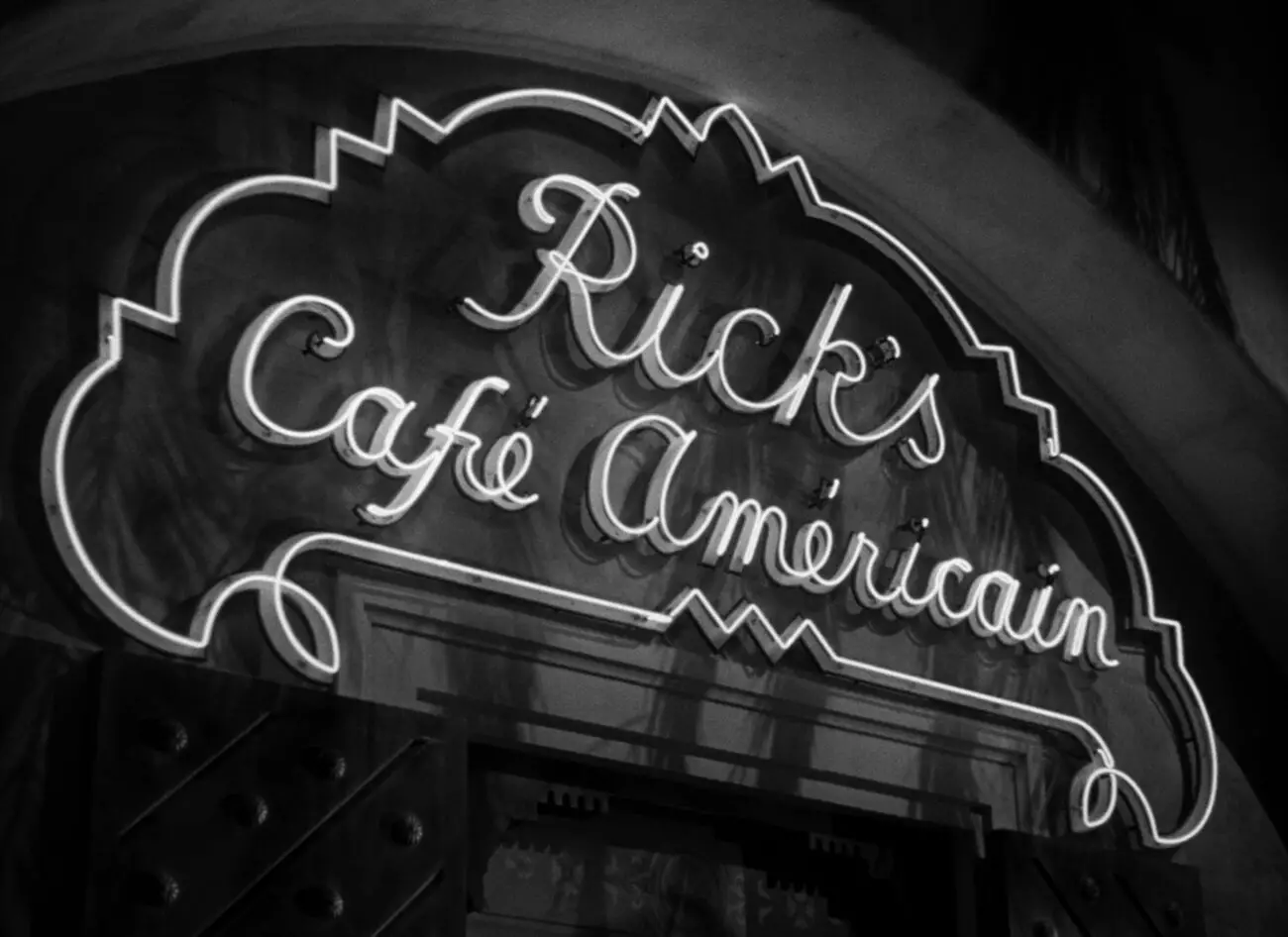
For those who don’t know the story, Casablanca takes place in the titular Moroccan city during World War II when it was a neutral French police state. In Casablanca, the neutrality makes it home to cast-offs, criminals, refugees, and lost souls from both sides displaced from Europe during the conflict. Many people hope to pass through Casablanca on their way to Lisbon, Portugal and eventually America. Crooked gangsters (embodied by Sidney Greenstreet’s Ferrari) and corrupt French police, led by the charming, yet opportunistic Captain Renault (the rib-tickling Claude Rains), control the black market and financial flow of who stays and who goes.
While biding their time (and to give credit to the title of Murray Burnett/Joan Alison stage play the film is based on) in Morocco, “Everybody comes to Rick’s.” Rick’s Cafe Americain is an expatriate saloon and city staple owned and operated by Rick Blaine (leading man Humphrey Bogart), a mysterious American who has found himself in the desert unable to return home to New York. He’s a complicated, yet stern man, made of more cynicism than principle. He wasn’t always that way and his bitterness has a source. For now, he would rather profit and observe from a distance than risk helping his desperate patrons trying to evade the war. Together with his trusted piano player friend Sam (Dooley Wilson), Rick’s is the place to be in town and the crossroads between freedom and oppression.
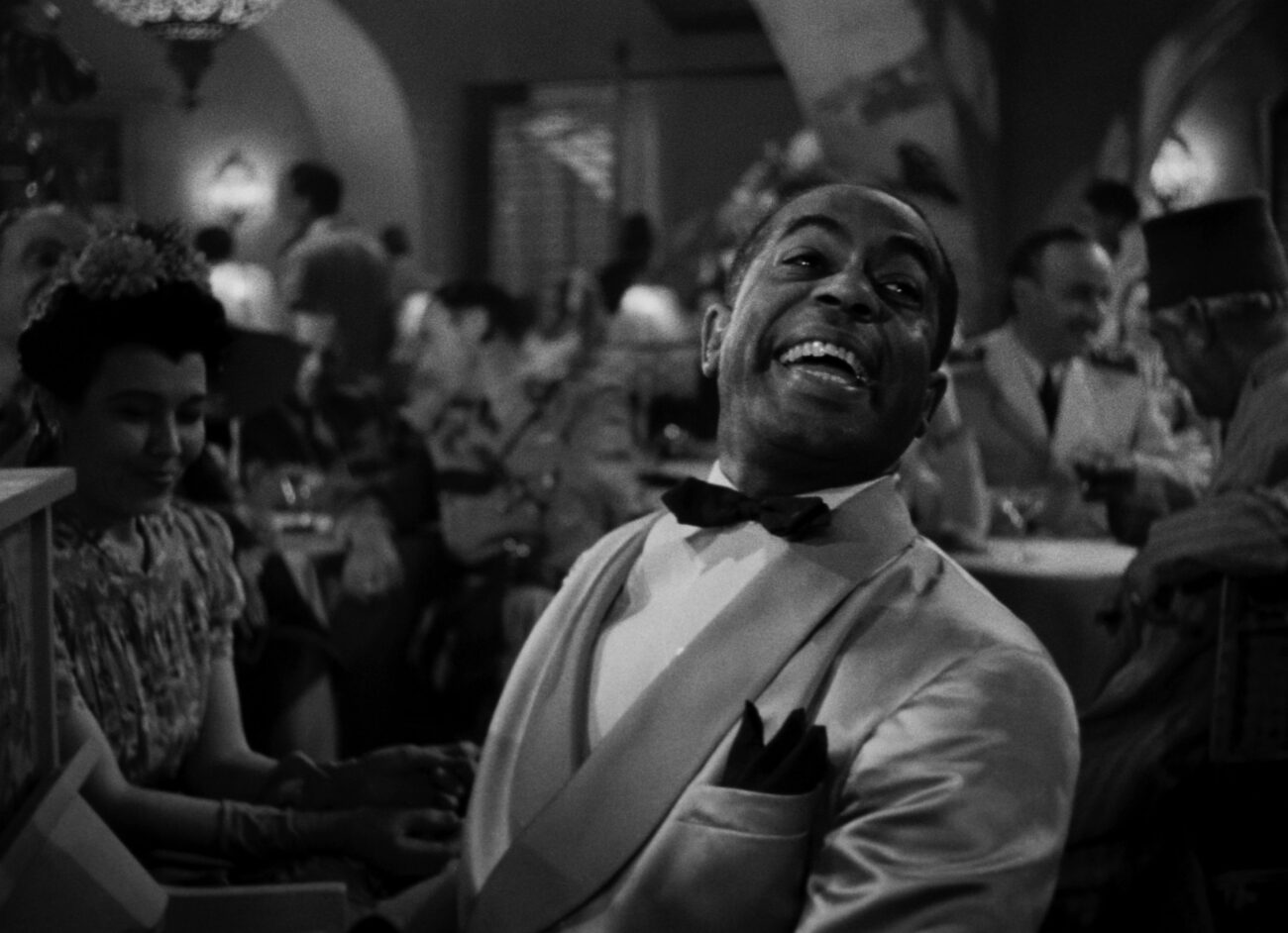
Business picks up when a true revolutionary, Victor Laszlo (Paul Henreid of Now, Voyager), arrives in Casablanca. Victor is a renowned and high-ranking leader of the Czech Resistance. He has fended off many apprehension attempts and has even escaped the concentration camps. Escorted by his lovely and supportive wife, Ilsa Lund (future 3-time Oscar winner Ingrid Bergman), he has made it to Morocco in hopes of finally escaping his Nazi pursuers, particularly the cruel Major Strasser (Conrad Viedt of The Man Who Laughs).
At Rick’s, Ilsa recognizes Sam from her time in Paris. She requests a song close to her heart, “As Time Goes By,” and the most silent crack of thunderous tension in movie history strikes when Rick hears the song, approaches Sam, and sees Ilsa. We don’t know it yet, but it doesn’t take a genius to see that they have history—history that likely didn’t end well the last time they met. It is at this moment that Casablanca elevates to greatness.
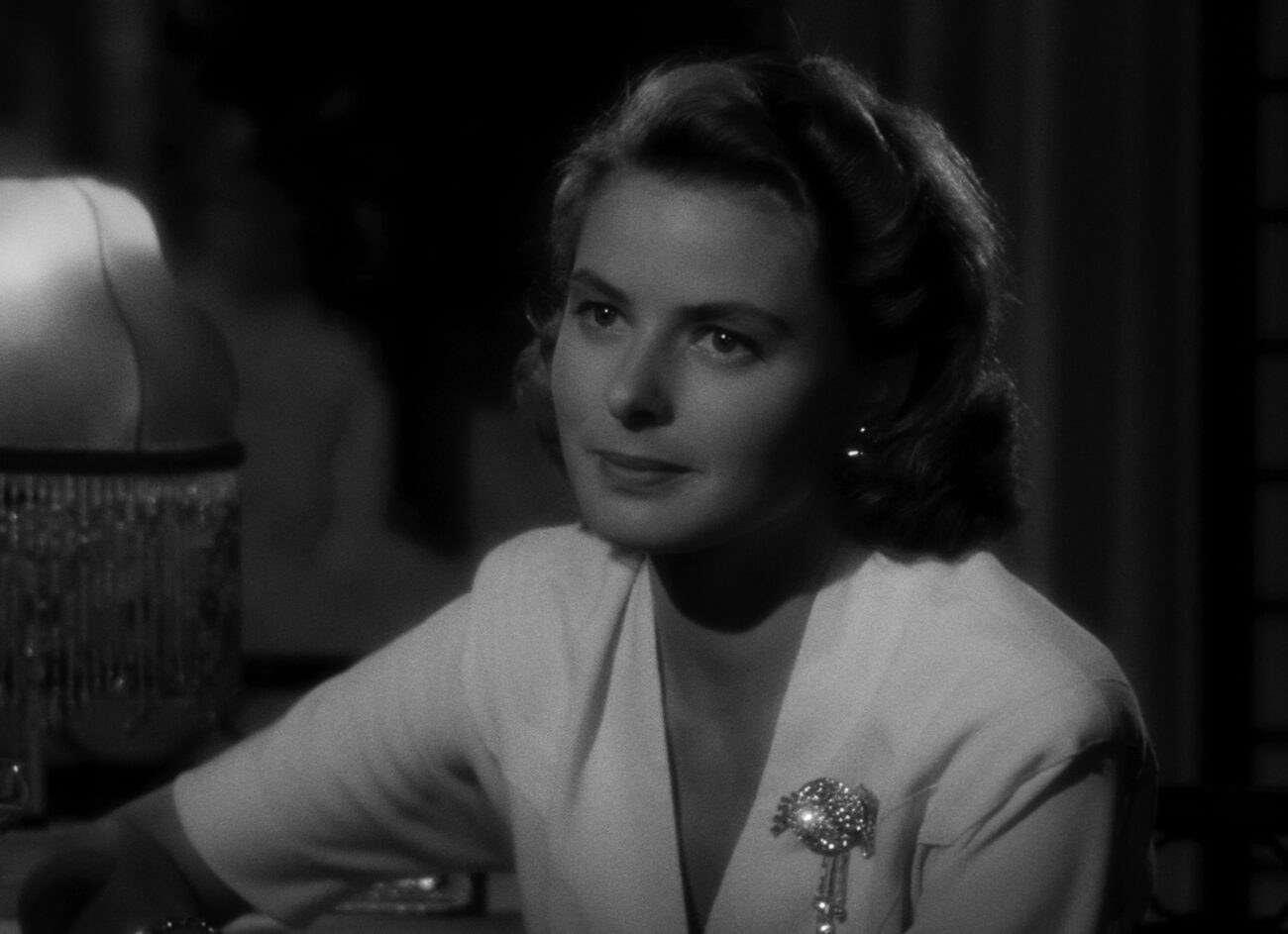
I guarantee every single one of us reading this review has a song, maybe even more than one, that evokes an extremely poignant memory, either happy or sad. We know every word and every chord. It freezes us in place, haunts our mood, and hits us like a ton of bricks when we hear it.
The classic “As Time Goes By,” then, in the 1940s, a forgotten little 1931 song written by Herman Hupfeld, does that to a stellar degree in Casablanca. Plenty of great movie scenes since have had great background songs, but very few have them living and breathing as part of a poignant moment or scene. Without “As Time Goes By,” John Cusack wouldn’t have that Peter Gabriel moment in Say Anything… and Meg Ryan and Billy Crystal wouldn’t have “Auld Lang Syne” in When Harry Met Sally… Their classic movie moments, like many other homages and pairings, come from the power demonstrated in Casablanca.
From the tenuous reunion between Ilsa and Rick onward, a different level of acting occurs. No more does Casablanca exist (as it was intended) as just another run-of-the-mill wartime melodrama. Every emotion and line stirs a purpose and comes from what was thought to be the most unlikely of sources. One of Rick’s frequently-spoken mantras is “I stick my neck out for nobody” and we see evidence of that stance as the events of Casablanca unfold. The Rick we meet in the film has chosen cynicism over romanticism or the power of a cause, yet he has a history of playing and rooting for the underdog. The film is smartly lined with political commentary in an as-then still evolving world war where the real-life ending was uncertain.
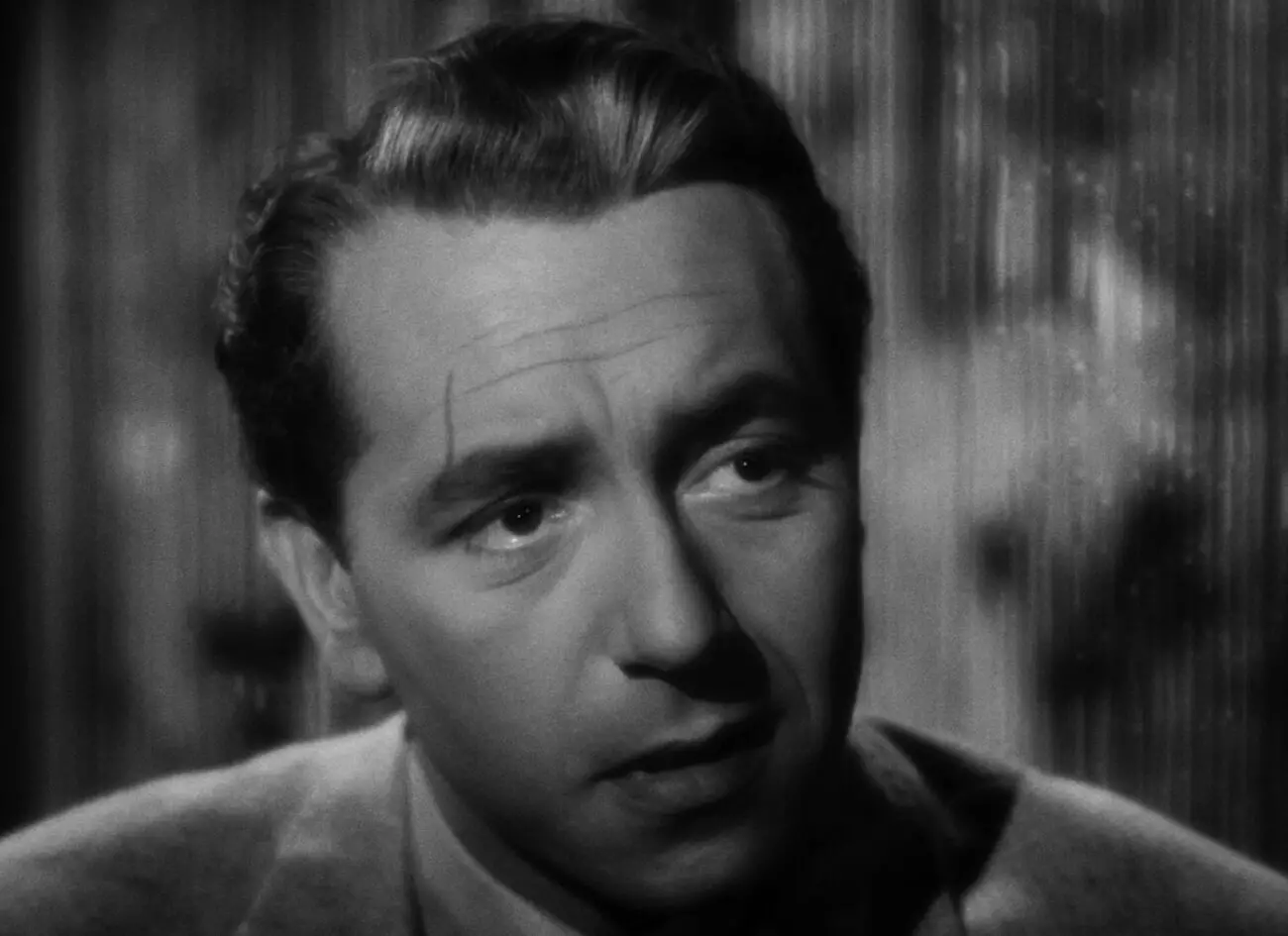
When the right reasons come to fight, when the right motivations require intervention, or when the right cause comes around for sides to be chosen, a driven character, no matter how cynical, will have their heart and conscience overcome them. When any of those scenarios happen, they become susceptible to changing their course, lowering their defenses, and taking sacrificial risks. Many characters in Casablanca experience unique changes of heart.
Humphrey Bogart transformed from the gangster persona that made him famous to an incredibly broken, wounded ex-lover. Watching him work with these emotions as Rick, Bogart took his acting to another level. You break your own heart over his gradually melting steel one while watching his remorse, regret, and love. He molds his piece of the film into essentially a break-up movie involving a world-class love triangle versus Henreid’s commendable civil hero.
Ingrid Bergman, after already having international acting success before Casablanca, went from a pretty Hollywood foreign beauty to the ideal object of desire and internal conflict. What she said in luminous looks, most actresses couldn’t accomplish in two hours of full dialogue. Together, she and Bogart created fireworks that few movie couples have matched since. You can have your cheeky romantic comedies, the mega-watt starlet smiles of Julia Roberts or Sandra Bullock, and all of the Nicholas Sparks novels turned into movies. This is the better and more mature fare and Hollywood romance at its finest.
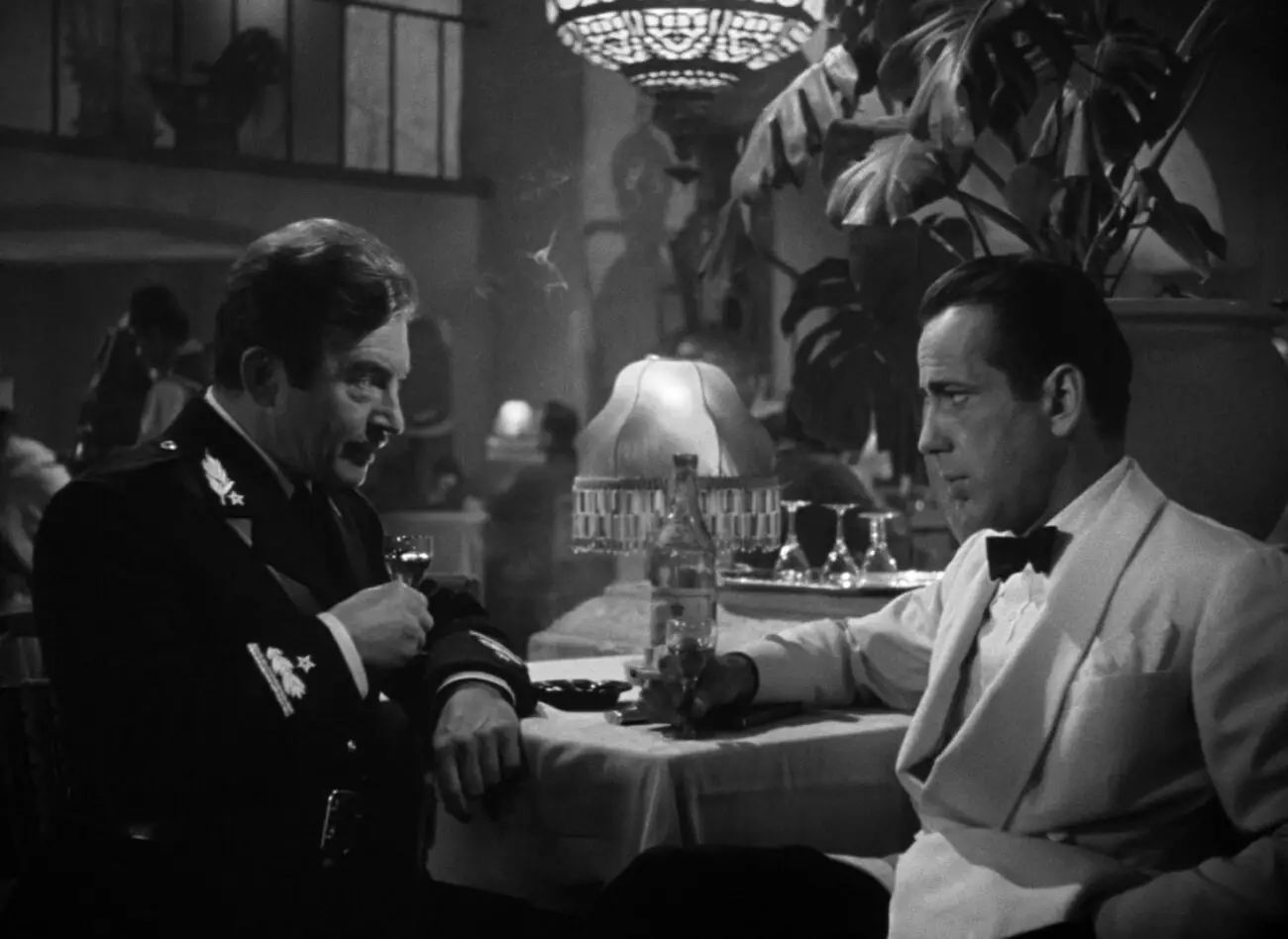
The two leads are surrounded by pitch-perfect supporting performances. Everyone, including the background characters played by international acting refugees, gets their little moments to shine. The depth developed by the three-man team of Julius and Philip Epstein and Howard Koch came to be ranked the best screenplay of all time by the Writers Guild of America in 2006.
Of the ensemble, none are greater than Claude Rains’ Captain Renault. Simply put, he got all of the best lines in an infinitely quotable movie. Rains brought superb comedic flair to every line and every scene he’s in. He takes what’s supposed to be a bit of a villain role and turns him into a guy you root for.
Much like Bogart on the lead side, it’s an egregious wonder how Claude Rains didn’t win the Best Supporting Actor Academy Award for Casablanca. Point of fact, he would never win, despite four career nominations. For Bogart, he was finally honored nearly a decade later for The African Queen. In total, Casablanca won just three Academy Awards—Best Picture, Best Director for Michael Curtiz, and Best Screenplay. History has treated it well in the eight decades since.
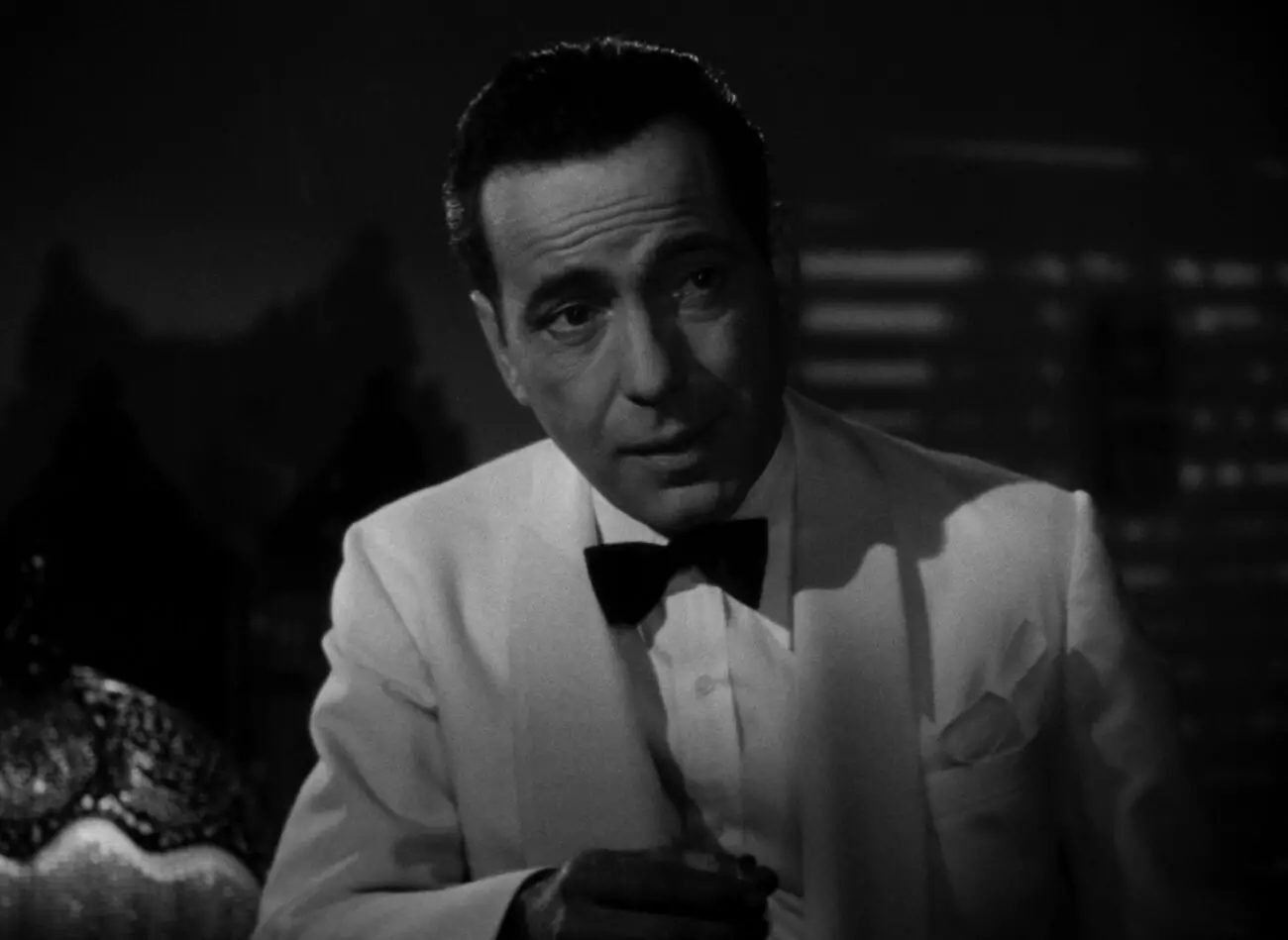
Casablanca ranks in the top five of six American Film Institute “100 Years…” lists, including #3 overall and the #1 love story from their “Passion” survey. In 1989, the United States Library of Congress selected the film as one of the first for preservation in the National Film Registry for being “culturally, historically, or aesthetically significant.” The ranks and titles only add up higher after that from other sources, historians, and publications.
By the time the intrigue and romance reach their climax in Casablanca, when we see who will stay and who will go (and with whom), the movie has taken you to a different place. First-time viewers will find themselves on the edge of their seats while those who have seen the film, like myself and many others, will tell you that the experience never gets old, in all of its black-and-white glory. For this kind of movie, with its stark anti-war perspective and worldview, to be made during the uncertainty of World War II itself is astounding.
Whether Casablanca is considered high-end melodrama, classic romance, or an anti-war film, the central conflict of Rick Blaine that emanates in the character boils down to choosing between love and virtue. His broken heart tugs for the side of love and taking for himself, while the underdog and self-sacrifice inside of him think of the bigger picture. His end decision truly defines his character.
No matter the circumstances, from the extremes of death and divorce or the divisive separation of geography or a tough break-up, we never forget our past loves. They always have a flame inside of us. If the split was on good terms, that flame warms and comforts, but the opposite causes a flame that scars from bitterness, remorse, or lesson learned. When old flames come back into your life, one cannot help but break character, become vulnerable, and stir up those positive and negative emotions.
Stride after stride, scene after scene, moment after moment, everything comes together and everything is tuned perfectly in Casablanca. The title of the original play was right, but needs a helping verb: “Everyone should come to Rick’s.” Quality that is near perfection in countless ways deserves to be seen and appreciated. That makes Casablanca required viewing for any lover of movies.
THE DISC
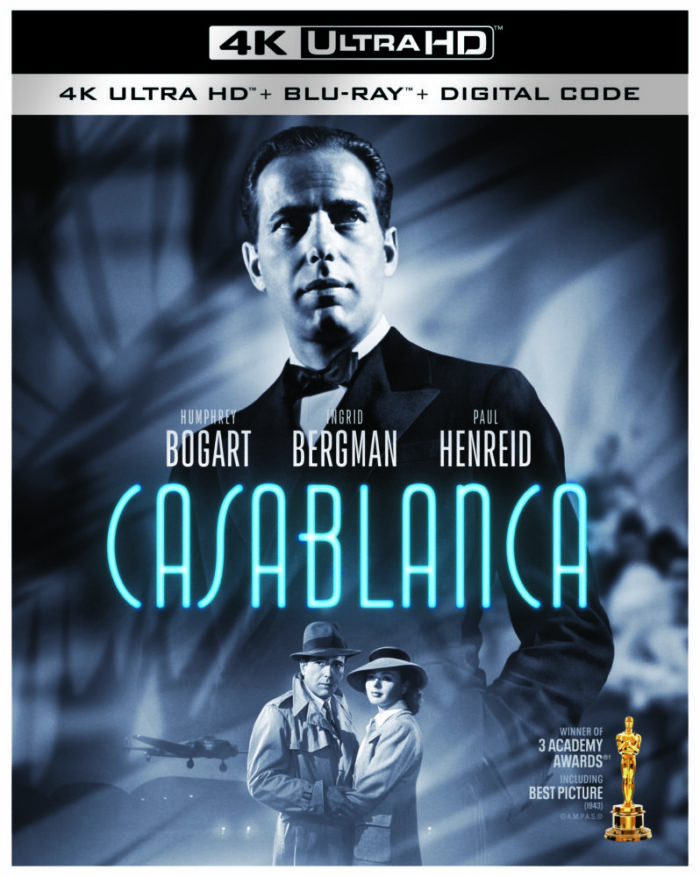
The new Casablanca 4K disc release, with its bold cover art, hits store shelves on Tuesday, November 8, 2022. The film has had its share of grant and treat-filled releases over the years on DVD and Blu-ray, including a dynamite 70th edition boxed set a decade ago for its 70th anniversary. Even with Warner’s usual weak and uninspiring menu design and navigation features, it’s very encouraging to see that the bulk of the bells, whistles, and special features from past editions made it into this one. WB has notoriously undercut its new 4K releases, but this one was happily spared that cheapened fate.
On the technical side, the pristine Ultra High-Definition image was restored and remastered from a 2022 4K 16-bit film scan of the best-surviving nitrate film elements. The 4K-scanned digital images went through an extensive digital restoration process to clean and repair the picture for an unprecedented and pristine ultra-high-resolution presentation. The restored images were then graded in High Dynamic Range for today’s premium 4K display experience, providing the highest fidelity in image contrast and detail retention.
This work was meticulously handled by Warner Bros. Motion Picture Imaging. The original theatrical mono audio has also been newly restored as well, providing a richer and broader frequency response than previously possible. All of that quality shows on the home television screen. The HDR and wider color spectrum deepens the black-and-white film.
While there are no new special features for the 80th anniversary and first release in 4K, the good stuff from before stayed, as aforementioned. Leading the way are a pair of excellent feature-length commentary tracks. Legendary film critic Roger Ebert and notable film historian Rudy Behlmer each hold court on track. Behlmer’s is a very good collection of historical notations culled from studio memos more descriptive than an IMDb Trivia page. The real superstar audio is the Ebert commentary. Part swooning fan appreciation and part demonstration of expertise, Roger Ebert’s talk is one of the best commentary tracks you’ll ever find on any disc from any studio.
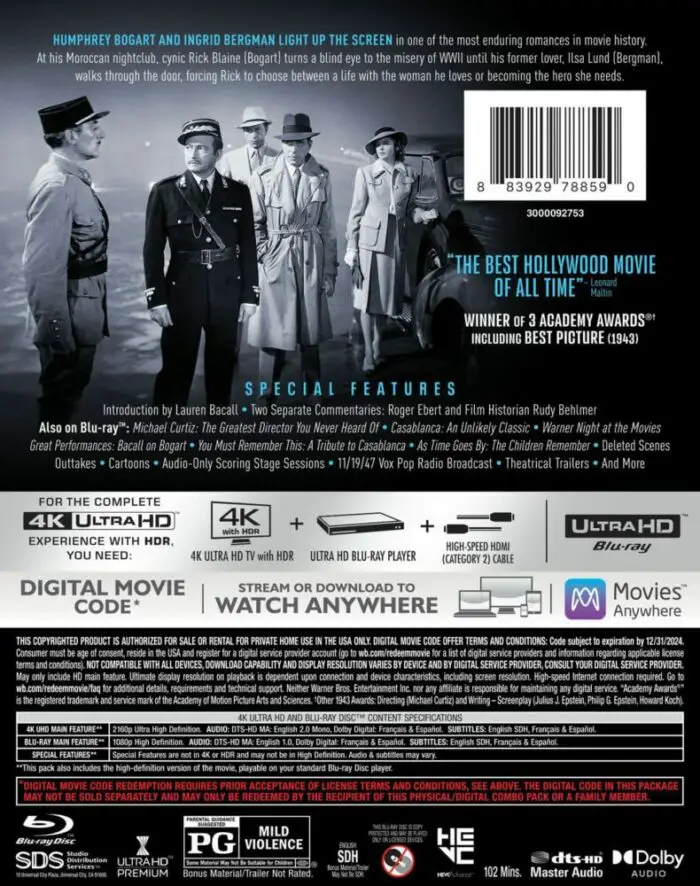
In an improved effort of top-shelf organization, both commentary tracks, and Lauren Bacall’s personal introduction, are available on the main 4K disc. So often lately, the WB 4K discs are featureless and the extras are demoted to the Blu-ray, so this is an appreciated step forward. While all of the extras making the main disc would be nice, at least the previous features returned in some capacity on the Blu-ray.
Those secondary Blu-ray nuggets include the “Warner Night at the Movies” presentation which includes three WB cartoons, a newsreel of the film event, and a trailer for Now, Voyager. Bacall returns on the featurette side with the 1988 PBS special “Bacall on Bogart” profiling her star husband’s career. Other historical reflections can be seen with “Michael Curtiz: The Greatest Director You’ve Never Heard Of,” “Casablanca: An Unlikely Classic,” 1992’s “You Must Remember This You Must Remember This: A Tribute to Casablanca,” and “As Time Goes By: The Children Remember” showing the extended generations. Each are rich chronicles for their purposes.
Often rare for releases this old, the Casablanca disc also highlights the adjunct cute stuff like deleted scenes, trailers, outtakes, score sessions, two radio broadcasts (one from the Lady Esther Screen Guild Theater and another from Vox Pop Radio), and even a pair of cheeky homages in the form of 1995’s “Who Holds Tomorrow?” TV episode and the “Carrotblanca” cartoon short. Adding all of this up, from top to bottom, you have one of the most complete classic 4K releases Warner Bros. has done to date. You would be smart to nab this one at its entry price.


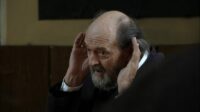

Totally agree. A pitch perfect movie that stands up to repeated viewing. Deserves its classic status completely.